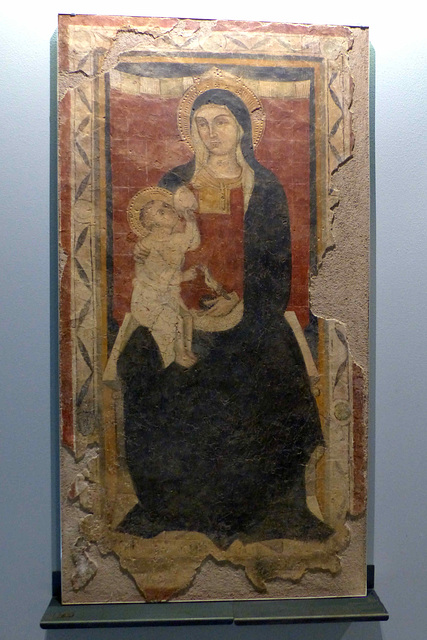L'Aquila - Museo nazionale d'Abruzzo
L'Aquila - Museo nazionale d'Abruzzo
L'Aquila - Museo nazionale d'Abruzzo
L'Aquila - Museo nazionale d'Abruzzo
Antrodoco - Santa Maria Extra Moenia
Teruel - Iglesia de San Pedro
Antrodoco - Santa Maria Extra Moenia
Antrodoco - Santa Maria Extra Moenia
Antrodoco - Santa Maria Extra Moenia
Rieti - Basilica di Sant'Agostino
Rieti - Basilica di Sant'Agostino
Rieti - Cattedrale di Santa Maria Assunta
Rieti - Cattedrale di Santa Maria Assunta
Rieti - Multisala Moderno
Todi - Piazza del Popolo
Todi - Duomo di Todi
Todi - Duomo di Todi
Todi - Duomo di Todi
Todi - Duomo di Todi
Todi - Duomo di Todi
Todi - Duomo di Todi
Todi - San Fortunato
Todi - San Fortunato
L'Aquila - Museo nazionale d'Abruzzo
L'Aquila - Museo nazionale d'Abruzzo
L'Aquila - Museo nazionale d'Abruzzo
L'Aquila - Museo nazionale d'Abruzzo
L'Aquila - Museo nazionale d'Abruzzo
L'Aquila - Museo nazionale d'Abruzzo
L'Aquila - Museo nazionale d'Abruzzo
L'Aquila - Museo nazionale d'Abruzzo
L'Aquila - Museo nazionale d'Abruzzo
L'Aquila - Museo nazionale d'Abruzzo
L'Aquila - Museo nazionale d'Abruzzo
L'Aquila - Museo nazionale d'Abruzzo
Bazzano - Santa Giusta fuori le mura
Bazzano - Santa Giusta fuori le mura
Bazzano - Santa Giusta fuori le mura
Bazzano - Santa Giusta fuori le mura
Bazzano - Santa Giusta fuori le mura
Bazzano - Santa Giusta fuori le mura
Bazzano - Santa Giusta fuori le mura
L'Aquila - Santa Maria di Roio
L'Aquila - Santa Maria di Roio
L'Aquila - Basilica di San Giuseppe Artigiano
Location
Lat, Lng:
You can copy the above to your favourite mapping app.
Address: unknown
You can copy the above to your favourite mapping app.
Address: unknown
See also...
Keywords
Authorizations, license
-
Visible by: Everyone -
All rights reserved
-
91 visits
L'Aquila - Museo nazionale d'Abruzzo


L'Aquila is located about 700 meters high in the valley of the Aterno. It is dominated on all sides by the mountains of Abruzzo, including to the east the Gran Sasso d'Italia, the highest mountain in mainland Italy outside the Alps.
In 1230, Emperor Frederick II founded Aquila on the site of - according to tradition - 99 villages. Since then, the number 99 has a special meaning for the Aquilians. The city walls were completely built in 1316.
In the 15th century it had about 8000 inhabitants and was the most important fortress of the Kingdom of Naples. In 1528 the city was conquered by Emperor Charles V for the Spanish crown. After the earthquake of 1786, the city was partially rebuilt in the Baroque style.
On April 6, 2009, an earthquake destroyed large parts of the city. There were 308 fatalities, and about 1,500 people were injured. Around 65,000 people were rendered homelessThe then Prime Minister Silvio Berlusconi immediately promised help to the earthquake victims of L'Aquila. There is circumstantial evidence that the mafia has infiltrated the authorities and is leaking aid money. It took almost five years for construction work to begin in L'Aquila.
The very interesting "Museo nazionale d'Abruzzo" was located in "Forte Spagnolo", the Spanish castle, since 1951. After the castle was severely damaged during the 2009 earthquake, it was moved to the premises of the former slaughterhouse and is now accessible again.
Madonna del latte - early 15th century
In 1230, Emperor Frederick II founded Aquila on the site of - according to tradition - 99 villages. Since then, the number 99 has a special meaning for the Aquilians. The city walls were completely built in 1316.
In the 15th century it had about 8000 inhabitants and was the most important fortress of the Kingdom of Naples. In 1528 the city was conquered by Emperor Charles V for the Spanish crown. After the earthquake of 1786, the city was partially rebuilt in the Baroque style.
On April 6, 2009, an earthquake destroyed large parts of the city. There were 308 fatalities, and about 1,500 people were injured. Around 65,000 people were rendered homelessThe then Prime Minister Silvio Berlusconi immediately promised help to the earthquake victims of L'Aquila. There is circumstantial evidence that the mafia has infiltrated the authorities and is leaking aid money. It took almost five years for construction work to begin in L'Aquila.
The very interesting "Museo nazionale d'Abruzzo" was located in "Forte Spagnolo", the Spanish castle, since 1951. After the castle was severely damaged during the 2009 earthquake, it was moved to the premises of the former slaughterhouse and is now accessible again.
Madonna del latte - early 15th century
- Keyboard shortcuts:
Jump to top
RSS feed- Latest comments - Subscribe to the comment feeds of this photo
- ipernity © 2007-2025
- Help & Contact
|
Club news
|
About ipernity
|
History |
ipernity Club & Prices |
Guide of good conduct
Donate | Group guidelines | Privacy policy | Terms of use | Statutes | In memoria -
Facebook
Twitter

Sign-in to write a comment.